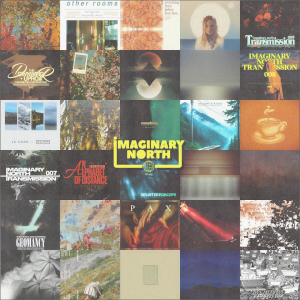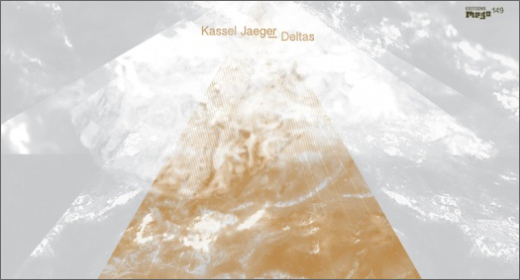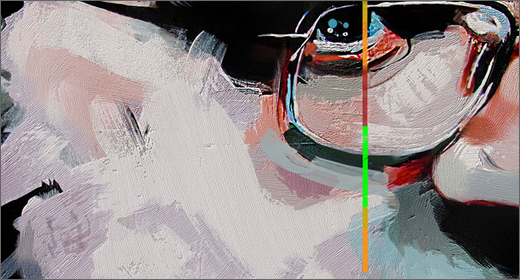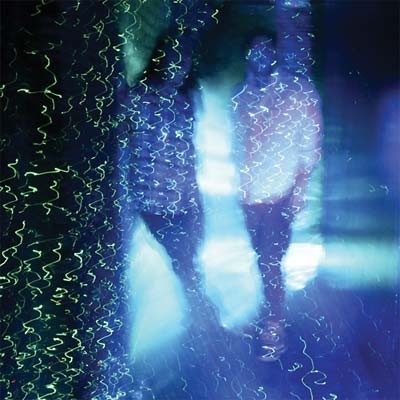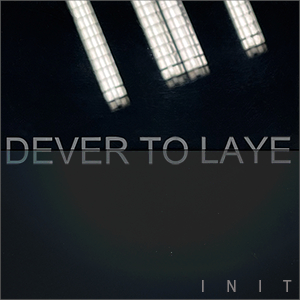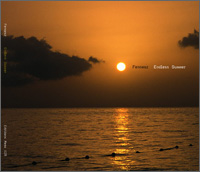 (04.04.07) There’s no going back, they say. The real point is not that you can’t go back, though. It’s that what you’re going back to isn’t the same. And it’s not to do with any time-wearing or physical alteration. It’s the act of going back and its re-constructing effect, with all its accretions and intersections. Then there’s the creative mediation of memory. If we call it a “text,” then we can tell it like it is. It’s inter-textual. It’s tricky.
(04.04.07) There’s no going back, they say. The real point is not that you can’t go back, though. It’s that what you’re going back to isn’t the same. And it’s not to do with any time-wearing or physical alteration. It’s the act of going back and its re-constructing effect, with all its accretions and intersections. Then there’s the creative mediation of memory. If we call it a “text,” then we can tell it like it is. It’s inter-textual. It’s tricky.
It doesn’t stop us trying to go back. To Endless Summer? Which… Endless Summer “2001?” It’s partly about going back itself, if you see it as a sonic reflection on memory warping perception. But this is Endless Summer “2006 Edition,” re-release of a work now iconic in the electronica canon. This places it at a further remove. And in going back, Endless Summer then seems to become more about itself and its own myth, while the “original” was about another endless summer, or rather the myth of it (the Beach Boys linkage). Or not even that so much as a further representation of the myth (remembering that Brian Wilson’s “California” was just as much a state of mind as a “real” location). Or a trace of the memory of it. And on and on. It gets slippery. So this new remastered version of Endless Summer is no mere re-release. It’s a Cultural Artefact, a Tribal Totem no less, heavy with accumulated resonance, an affair of smoke and mirrors of reference and signification by now. Intertextuality bites.
You can try to go back… to reconnect… the strangeness and familiarity it had about it. There we were in an only lately digitally colonized musical world that largely viewed experimental electronica like a branch of academic computer music – stuff for weirdy-beardy Wire-types to stroke their chins to. There wasn’t even a ripple to hint at this new wave of ’emo-tronica’ that’s all over us like a rash now, no signal that electronica’s noise might have a hotline to the heartstrings (or that “glitch” might be absorbed into the everyday as a genre tag). So, this out-there Viennese guitar-wringer Christian Fennesz had had a Big Idea. He seemed to want to fuse different trajectories of the non-mainstream music he’d been steeped in and patch them into pop to jolt free some of the emotive caché at its heart, and, in new wild frontiersman spirit, patent a millenial meltdown music. The Beach Boys somehow got bundled into the vehicle (no matter that the main 2-chord trick was taken from The Sandals’ “Theme From the Endless Summer” (1964)), ending up drenched in a laptop-mediated acid-bath writhing in gravel to the sound of granular synthetic wave-crashing. Anyway, that fragment of humdrum humble-strum, transmogrified, became the eddy from which surged a new current of energy in electronic music. So a major part of what Endless Summer signifies now is the inauguration of that Big Wave of Glitch. Digi-Surf’s up.
Rewind a bit… to year 2000: in +47° 56′ 37″ -16° 51′ 08, Fennesz had issued an album of such anharmonic clangor it easily qualified for the “noise” appellation. On some tracks the guitar’s presence was so compromised by software intervention as to be totally effaced. On Endless Summer, Year 2001, however, though the song did not remain the same, being eaten alive as it played, the guitar and the melody lingered on. So, fast forward to 2006, remastered version, and there’s the harmonic autophagy of the title track and its amalgam of microsonic sub- and super-stratum with organic filling. But how to approach it now? We can describe its provenance: how it borrowed from MBV and Sonic Youth, and drew on Oval-derived experimental roots; how the cover art, depicting sunny seascape, and those chords channeling a far-off nostalgic lilt, fed to laptop and eaten up and spat out, goodness eviscerated, left a sound both wired-up and wistful, sliced up and silky, diced up and dreamy; and that faux-naif 2-chord strum, seeming eroded and mangled with jagged-edged resonances, but also channeling sunbursts and breakers – reminiscent melody struggling to out; and “A Year in a Minute” following in similar fashion, to clinch the emotional return on Fennesz’s off-kilter melodic powerplay strategy, a radically circuit-bent semi-drone fizzing with crystalline soundbeams. “Caecilia” and “Shisheido,” allowed out with their prettiness almost intact, but interfered with, otherized. We can describe all this, but the act of re-release has about it a poignancy – a denial that what is gone, that was never really there in the first place, that was essentially a head-projection – is really gone.
There’s no going back, because when we go back again we find that what we recall was never even there. Hear it now, and it emerges that Endless Summer is a false memory. The cold light of day shows: an opening track that doesn’t belong, or rather is a residue… a bridge from over-there (noise) to get to over-here (harmony). It dawns: it’s a five-verse tone-poem that constitutes Endless Summer, or at least the Endless Summer that resonates in the head, and all that follows is water-treading endnotes. “Before I Leave” now seems merely an exercise in CD-skipping with some Feldmanesque spatial exploration – clever but detached from the summer-storyboard, and the static-y organ-grinding 10-minute closer “Happy Audio” is Riley-Reich stuck in a loop – a sideshow, and more like digitized snowflake dancing after the warmth of the summer, now revealed as having, sadly, an all too palpable end. Not endless, but resonating with endlessnessism.
This recording, then, is not the same as it was, and not just because it’s been re-mastered by Christian Fennesz. It’s become a symbol… of myth and memory and revisiting, and removal, and it’s hard to hear it otherwise now. Endless Summer has become a myth inside a myth that holds another myth. That’s how it is to go back to it now. There’s no going back.
Endless Summer is out now on Editions Mego. Buy it at Amazon.com.









